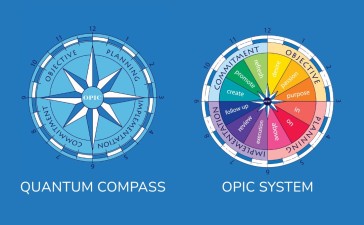We need money all the time, and when we do not have it, we go money lender or banks to get loans. If anyone wants to buy a house or a car more often than not, he or she will go to the bank to lend money which he or she will repay in installments. If you do not pay it back in time, this will affect your credit score. The credit score is your history with credit represented in a 3 digit number.It tells whether or not you will repay what you have borrowed and has an influence on future loans. They are various websites out there for a free credit check.
Each every person has, who has ever taken credit, will have a credit score. So how does it impact loan application? To understand this, we first need to understand how it is calculated and what happens if it is higher or lower?
Credit score
Credit scores are 3 digit numbers ranging from 300 to 850. This number tells the lender about you and whether you are eligible for the loan. There are 5 factors which are taken into account when calculating credit scores, and we will describe each one. Each of these is taken in different ratios, so some have more weight than others
Payment History
This counts for 35% of the score. This shows whether you are on time with your payments or not. This is very important when it comes to your loan application because they will be skeptical if your payments are not on time and might not lend you money. They will consider untrustworthy. Payment delay, bankruptcy and foreclosure all come into play when checking your payment history. If all of these have been done recently, then it makes your case even worse.
Debt
Debt is 30% of the credit score. This takes into account credit utilization.For example, if you have a $4000 balance on your credit card and the limit credit is $10,000. Then your credit utilization is 40%, which is quite high. For better credit scores it should be below or at 30% not above it. So this means high credit utilization means your score will suffer, and since it accounts for 30% of the credit score, your aim to get the loan will take a serious hit.
Inquiries
This accounts for 10% of the total credit score. The requests which are made when you apply for credit is called an inquiry. The more the inquiries are made, the lesser your credit score. The inquiries which you have made in the past year are only taken into account. When you are inquiring again and again for money, this leaves an impression that you are financially in a mess.
Credit history length
This accounts for 15% of the credit score.The lengthier your credit history, the better your credit score. Of course, this doesn’t mean anything if you are in debt throughout your credit history, but a long history provides information on how you spend your money.
Credit mix
10% of the credit score is the credit mix. Credit mix or a mix of credit is the number of accounts you run. This is a representation that you can manage different types of accounts.
What is a good credit score
Credit scores start from 300 and go up to 850. 300 being the lowest and 850 being the highest a person can achieve. According to FICO, the credit score in the range of 300 to 579 are very poor. Scores from 580 till 669 are fair or average. Credit scores which start from 670 and go up to 739 are considered to be good credit scores, while those in the range of 740 and 799 are considered to be very good. Exceptional or excellent credit scores fall in the range of 800 to 850.
What to do if you have a poor credit score
If you have a poor credit score and want to improve, there are certain things that can help you improve that number which can, in the end, help you in getting your loan approved. As time passes, information is updated, and new information is put in the person’s credit report, which can either make your credit score go up or bring it down.
The first thing you should do is be punctual. Pay all your bills before the due date. Do not be lazy and pay it on time. If you keep doing this and all the bills are paid before the deadline, then your score will be significantly improved in 6 months.In the credit report, you are billing information and how much on time you are with your payments is taken for the past seven years.
The next thing to keep in mind does not open and not even apply for new credit accounts just for a better mix of credit. It would not help your cause, and your credit score would not improve.
Read your credit reports. Yes, you read that right go through your credit report and credit history from the reporting agencies and look for any mistake they might have made. They might make an error which can lower your credit score significantly. Contact the credit reporting agency and the lender when you find mistakes or information that is unavailable or missing and argue your case with them.
The credit utilization ratio, which was mentioned in this article before is a very important number when it comes to your credit score. You have to improve this number so that it can be less than 30%. You can do that by clearing the debt that you have and also by lowering the balances on your credit card. You can also help your cause by being an authorized user on some other guy’s account.
Inquiries are 10% of the credit score, so do not apply unnecessarily for money lending or credit as this counts as a hard inquiry on your credit report. They can be in the credit report for two years. So make fewer inquiries to better your credit score.
Conclusion
We have seen and learned how the credit score could either help you in your loan application or reject your loan application. It all depends on the 3 digits that you have as a credit score. You have to make sure that your credit score is not lowered 670. If it is lower than it makes your job of getting your loan application approved very difficult. So make sure you pay off all of your debt and do the things mentioned earlier to improve your credit score and buy the house or car that you dreamed of.





